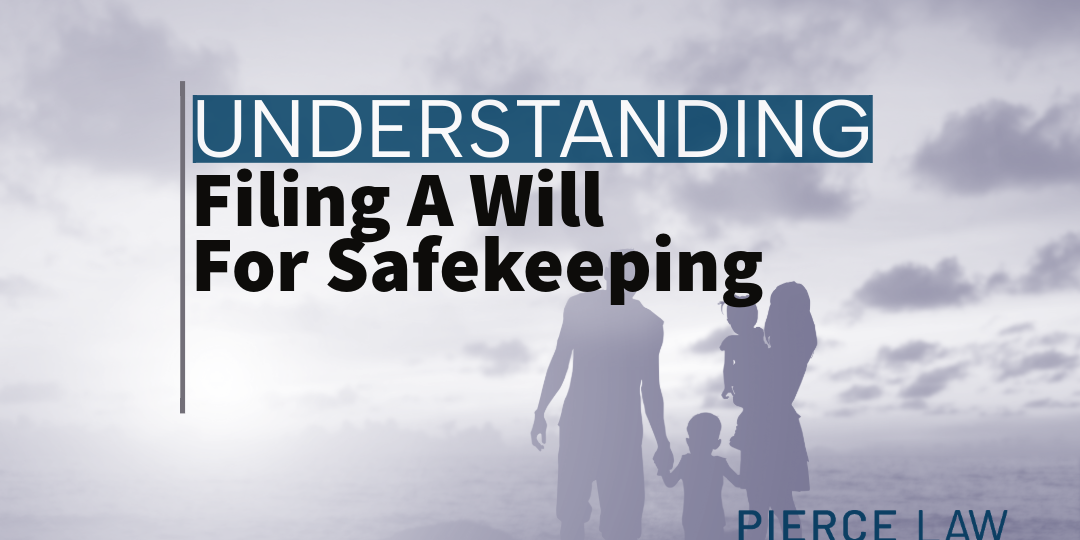Filing a Will for Safekeeping in North Carolina: A Step-by-Step Guide
If you’re planning your estate, securing your will is an essential step. In North Carolina, you can file your will for safekeeping with the clerk of superior court in your county. This guide will walk you through the process, explain why it’s important, and help you take action to protect your final wishes.
What Does Filing a Will for Safekeeping Mean?
Filing a will for safekeeping allows you to store your will securely with the clerk of superior court before your death. This ensures the document remains safe and easily accessible when needed. However, it’s crucial to note that this is different from offering a will for probate, which occurs after your death to validate and distribute your estate. Filing a will for safekeeping only involves storing the document; it does not trigger any legal proceedings.
Why Should You File a Will for Safekeeping?
Filing your will for safekeeping offers several key benefits:
- Security: It protects the will from damage, theft, or misplacement.
- Confidentiality: Only you or an authorized agent can access it before your death.
- Convenience: After your passing, the will can be retrieved easily to begin the probate process.
By taking this step, you provide peace of mind to yourself and your loved ones.
Requirements for Filing a Will
Before heading to the clerk’s office, ensure you meet these important requirements:
- Submit the Original Will: The clerk only accepts original wills. Copies cannot be used for probate.
- Keep the Document Untouched: Avoid making marks, annotations, or alterations that could raise questions about its validity.
- Prepare for Secure Storage: The will must be placed in a sealed envelope labeled with your name and the date of filing.
How to File Your Will for Safekeeping
Filing a will for safekeeping is straightforward. Here’s how you can complete the process:
- Deliver the Will: Take your original will to the clerk of superior court in the county where you live. If you’re unable to do so, you can authorize someone else to file it on your behalf.
- Receive a Receipt: The clerk will issue a receipt as proof of the filing. For added security, you should sign this receipt to confirm the transaction.
- Clerk Indexes the Will: The clerk will record your will in a confidential index called the Index to Wills Held for Safekeeping. This step ensures that the document is logged but not publicly accessible.
Who Can Access the Will?
Maintaining confidentiality is a top priority in this process. Before your death, only you or a person you’ve authorized can retrieve the will. After your passing, your executor or another responsible party will need to request the will to begin probate.
In addition, the clerk’s index, which lists wills held for safekeeping, is not open to public inspection. This guarantees your privacy and ensures the will remains secure.
What Does It Cost?
Here’s some good news: there is no fee to file your will for safekeeping in North Carolina. This makes it an affordable way to ensure your document stays safe.
Additional Tips to Consider
To make the most of this process, keep these points in mind:
- The Clerk’s Role: The clerk acts only as a custodian for your will. They don’t verify its contents or provide legal advice.
- Locating a Will: If your family or executor cannot locate your will, they should check with the clerk’s office where you resided. If necessary, they may also contact other counties where you might have filed it.
- Does Not Replace Probate: Filing your will for safekeeping does not initiate probate. After your death, your family or executor must still file the will for probate to legally distribute your estate.
Why Act Now?
Taking the step to file your will for safekeeping prevents confusion and eliminates unnecessary risks. By storing your will in a secure location, you reduce the chances of misplacement or disputes among loved ones. Most importantly, you ensure your final wishes are honored.
What Should You Do Next?
- Draft Your Will: Work with an experienced estate planning attorney to create a comprehensive, legally sound document.
- Visit Your Clerk’s Office: Take your will to the clerk of superior court in your county to complete the safekeeping process.
- Inform Trusted Individuals: Let your executor or a trusted family member know where your will is stored and how to access it if needed.
- Keep Your Receipt Safe: Store the receipt from the clerk’s office in a secure location. This provides proof of where the will is kept.
Need Help with Your Estate Plan?
If you have questions about filing a will for safekeeping or need assistance with estate planning, don’t hesitate to reach out. At Pierce Law Group, we focus in helping individuals and families secure their final wishes. By filing your will for safekeeping, you take an important step toward ensuring your estate plan works exactly as you intend. Don’t wait—secure your peace of mind today!


